#a memory called empire
Photo
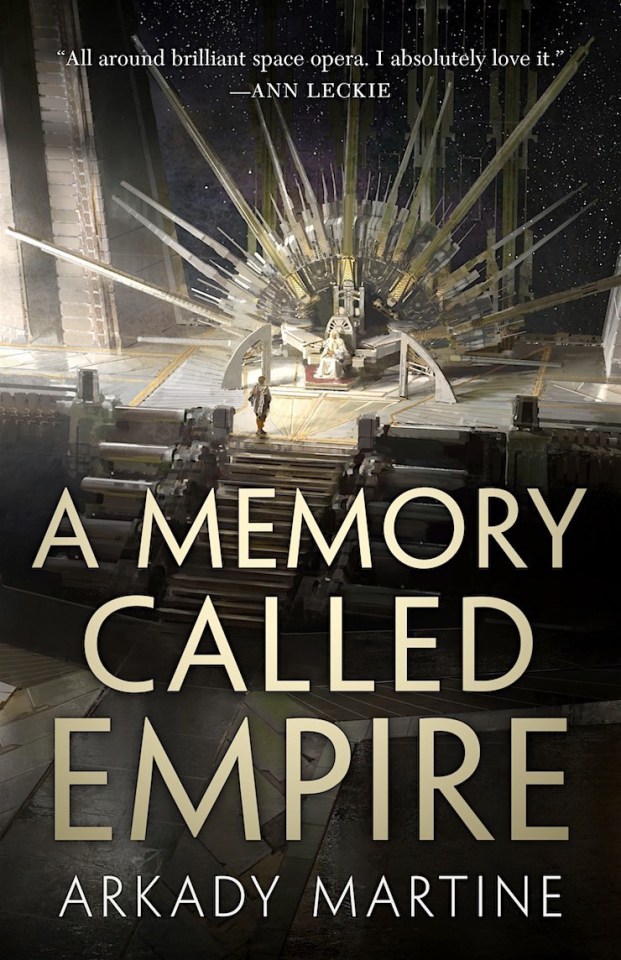
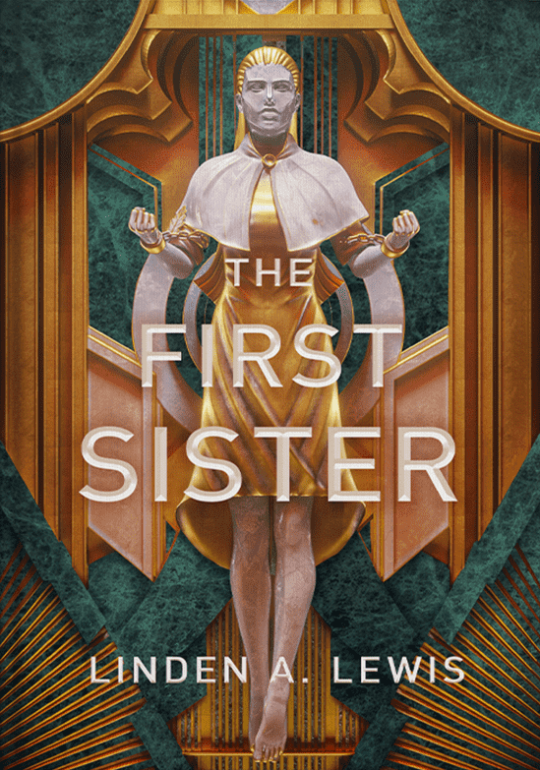

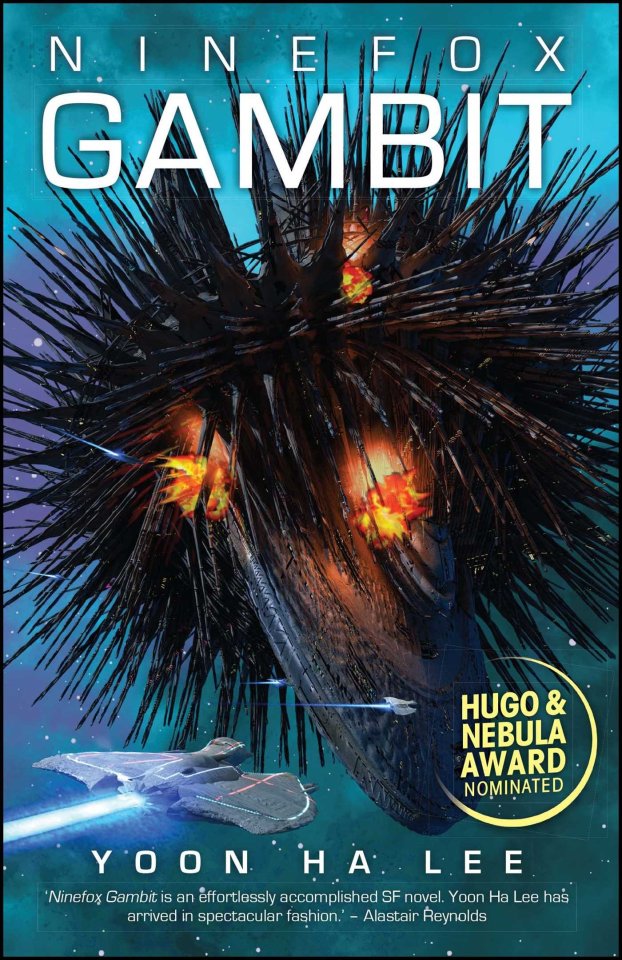
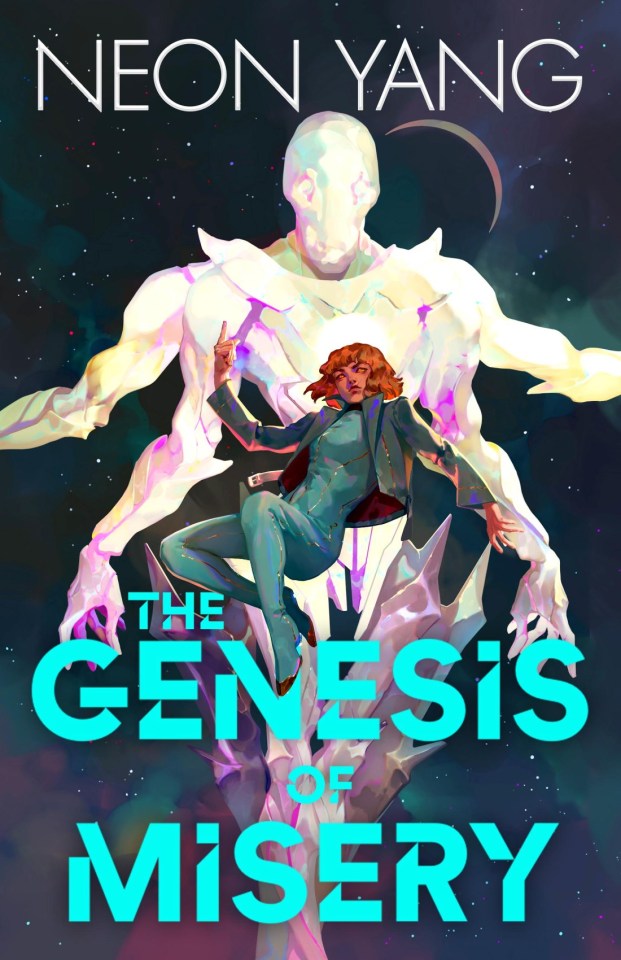
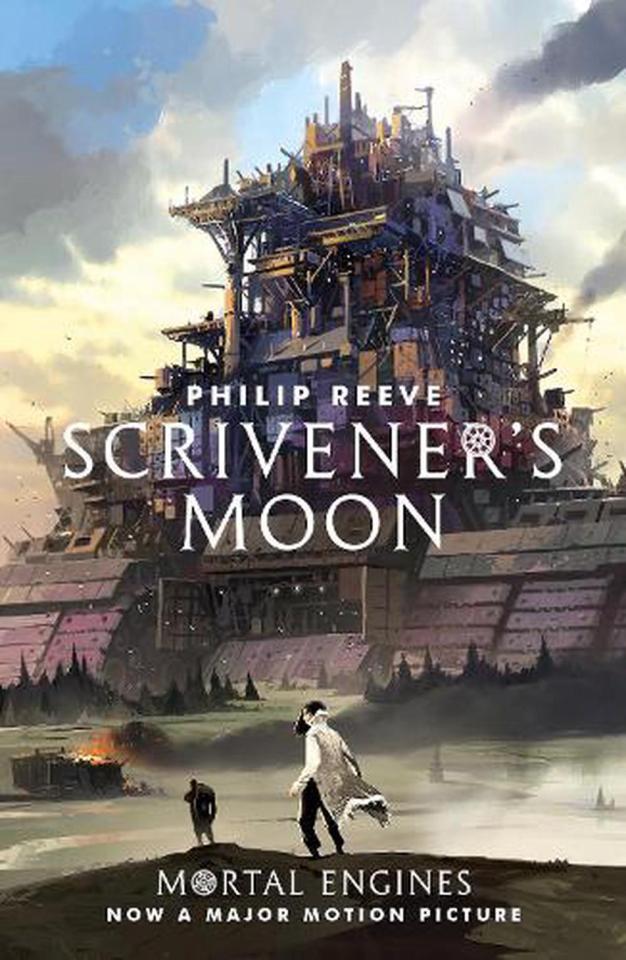
Sci-fi books where a queer woman has the ghost of an annoying dead guy in her head
*Misery is nonbinary (she/they) and who’s in her head is not dead or a guy but I’m counting it, okay
#scriveners moon is also YA and later in a series i just. needed an extra to round out the post#(i am sure there are other books like this around....tell me them..)#a memory called empire#the first sister#the stars undying#ninefox gambit#the genesis of misery#scrivener's moon#i havent read the other ninefox gambit books. i need to do that. one day#(also in TFS i probably wouldn't describe [spoiler] as annoying lol. maybe not some of the others also but anyway)#book list
2K notes
·
View notes
Note
10. What is your favorite genre book to recommend to someone who doesn’t usually like that genre?
Usually when people ask me for a rec for a genre they don’t usually like, they are asking for sci-fi, and I start by trying to figure out different access points based on what they already like. I’m not much of a hard sci-fi person, tending more to the space opera and political thrillers, so here’s a few “if you like x, maybe try y”:
If you like romance, give Everina Maxwell’s Winter’s Orbit a try. It’s definitely sci-fi in setting and plot, but it also hits nicely in the formulaic patterns of a arranged-marriage, strangers-to-lovers story that will help you through it even if the sci-fi elements are throwing you off. The author has another similar book that increases the sci-fi elements and is enemies-to-lovers as well, so if you like Winter’s Orbit, Ocean’s Echo is a good next step.
If you like non-fiction, The Martian by Andy Weir is a great pick. I have multiple friends who got into reading again as adults via The Martian. It’s well-written, well-grounded, funny, and very sci-fi. If you’ve already read it, then maybe give To Be Taught if Fortunate by Becky Chambers a try. It can be described with all the same adjectives, plus it’s a short novella, so if you’re hesitant, it’s less intimidating.
If you like mysteries or political thrillers, boy is there a lot of great sci-fi out there for you. The crux of a lot of sci-fi is space or high-tech settings with a plot that asks questions about personhood, and that mixes really well with detectives and spies wandering around trying to solve problems and find truths. Try Fugitive Telemetry by Martha Wells (it’s partway through a series of great books and novellas, but that one’s the most traditional mystery plot) or A Desolation Called Peace by Arkady Martine (ambassador solving her predecessor’s mysterious death while trying to do his job)(I’d also recommend this one if you read a lot of classics) EDIT: just realized I mistyped - book 1 by Arkady Martine is A Memory Called Empire.
If YA/ Bildungsromanen/ New Adult figuring the world out through trial and error is often your jam, try Provenance by Ann Leckie (for the kid who really wants to do things right) or The Warrior’s Apprentice by Lois McMaster Bujold (for another kid who wants to do things right, but is also a high-energy chaos gremlin).
If you like fantasy, you probably already have read some sci-fi; it’s all under the speculative fiction umbrella and genres are vague anyway. All the same, I know this is the Locked Tomb Website, but give Gideon the Ninth by Tamsyn Muir a shot (it’s got magic and mayhem and an epic locked-room whodunnit mystery). The Best of All Possible Worlds by Karen Lord is also good - it has a team of people traveling together and thinking about morals and discovering new abilities, plus some romance.
I’m sure there’s lots of genres I’m forgetting right now, but feel free to send me another ask for any specific one!
#readers asks#winters orbit#oceans echo#everina maxwell#the Martian#andy weir#to be taught if fortunate#becky chambers#fugitive telemetry#martha wells#the murderbot diaries#a desolation called peace#arkady martine#a memory called empire#provenance#ann leckie#the warriors apprentice#lois mcmaster bujold#gideon the ninth#tamsyn muir#the best of all possible worlds#karen lord
587 notes
·
View notes
Text
there should be a name for the genre of sff books that deal with colonialism/imperialism and have queer protagonists that commit war crimes
#like there are so many of them#she who became the sun#baru cormorant#a memory called empire#the locked tomb#machineries of empire#i just know i’m missing someone here#anya.txt
838 notes
·
View notes
Text
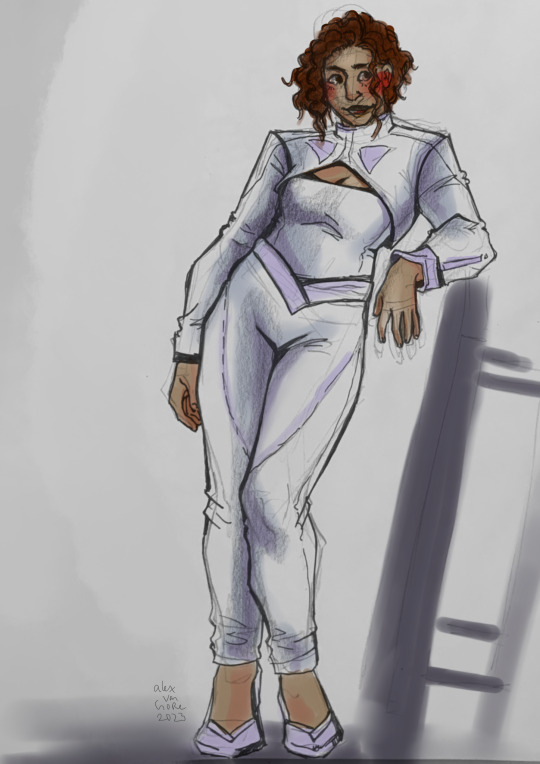
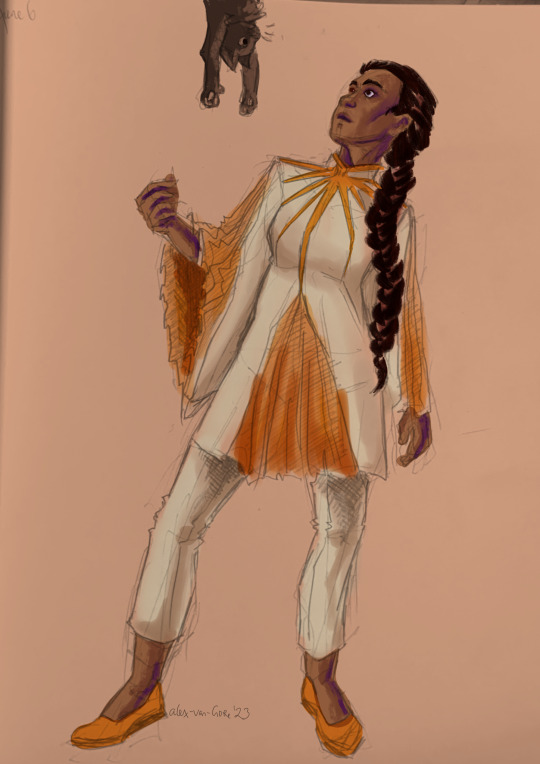
I’ve been doing the draw-everything-June challenge (where you use a pose reference every day, and, no I’m not on time at all). Two of those turned into Mahit Dzmare and Three Seagrass! Slapped some colour on them for the vibes. Mahit is in her angular white intimidation outfit, and Three Seagrass is encountering a kauraanian Kitten.
#a memory called empire#a desolation called peace#teixcalaan#arkady martine#mahit dzmare#three Seagrass
156 notes
·
View notes
Text
Just gave a list of recommendations for books and podcasts to my mom who was looking for something other than TV shows to listen to, and I realized that every one of them had female main characters. And most of them were queer!
It may not seem like much, but younger me would be so happy that we have so many female role models in our media now, and that we have more positive w/w relationships to look up to
It's the little things, ya know?
#Imperial Radch#a memory called empire#Ancillary justice#teixcalaan#alice isnt dead#tscosi#The Bright sessions#the strange case of starship iris#feminism#Lgbtq
54 notes
·
View notes
Text
Queer Normal-World in SFF Books
Here are five books where being queer is the norm, aka there is no homophobia or transphobia at all! Not all these books are fluffy though -- most of them have heavy conflicts and a bunch of shit going down, but at least no one has a problem with anyone being gay!
These are my favorite kind of books and I have so, so many recommendations, so let me know if you ever want more of these :) And I can also absolutely do only fluffy queer books, too!
The Genesis of Misery, by Neon Yang
Mx. Yang's books are perfect for this type of prompt. The Genesis of Misery is their most recent, and the premise is absolutely killer. It follows Misery Nomaki (she/they), who is haunted by an apparition of an angel. While she is convinced she is mentally ill like her mother, and that her visions are a symptom, people around her seem more and more certain that she is actually some sort of messiah.
I have my issues with The Genesis of Misery, but it’s a very creative sci-fi that’s worth the read. It includes mecha, interesting depictions of religion, which permeates the entire story, and, of course, excellent queer rep. We have characters who use neo-pronouns, a polyamory situationship and most characters are queer. Not to mention, it’s written by a queer and non-binary author, which is always a plus. It’s part of an on-going series, though, so be prepared to wait a little while for the sequel!
Plus, The Locked Tomb fans might be interested to know that there’s a very cavalier-necromancer dynamic in this, and that Rebecca Roanhorse (who wrote Black Sun) described it as Joan of Arc meets Gideon The Ninth.
Yep. You wanna read it, don’t you?
(Also, if for some reason you’re like: “gee, I really wish there was a black-and-white silent movie with a killer score that touched on these same themes”, then you should probably watch The Passion of Joan of Arc (Carl Theodor Dreyer, 1928). It’s not explicitly gay, but it is queer in my heart. And it rocks.)
The Locked Tomb Series, starting with Gideon The Ninth, by Tasmyn Muir
Since I mentioned it, I guess I might as well include The Locked Tomb in here! This is a Tumblr favorite, and with good reason, because The Locked Tomb fucking rocks. It’s hard to pitch it to someone without ruining the whole point of the series, but the first book follows a necromancer, Harrowhark and her sworn swords-woman, her cavalier, the butch-as-hell Gideon, as they’re summoned to the First House to compete to become Lyctors, the companions of God.
Yeah, I know that’s a lot, and, to be honest, it’s probably not gonna make much sense to you at many points throughout the story, but that’s the point of The Locked Tomb - everything is confusing, and it’s about sapphics in space!
The thing about this series is they’re the most unique books you’ll ever read. Every volume has a different approach to telling its story. There’s so many mysteries and it’s almost impossible to understand all the intricacies without sitting down and doing some work. The magic system is also the wonkiest, coolest thing - it involves eating people, sometimes, y’know. And, I promise, you’ll love every single second of it. Especially because there’s absolutely no homophobia or transphobia in any of it, and almost every character is queer as fuck - especially after the second book, when gender starts getting a little funky!
Winter’s Orbit, by Everina Maxwell
I love this book so much, and so know that it comes highly, highly recommended! I have a whole five star review on it you can check out here. (Do check trigger warnings, though! You should always, but especially for this one. I didn’t and they really got me!).
Winter’s Orbit features my absolutely favorite trope - queer arranged marriage. (Nothing better - those three words and you know it’s gonna be a queer normal world, have some politics and probably be really fucking sweet.) This one is probably one of only ones out of this list where the romance is very predominant and serves as an important B plot. It’s also a standalone, but has a companion book in the same universe, called Ocean’s Echo, which rocks, too!
This one follows Jainan, a recent widower who is rushed into an arranged marriage with Prince Kiem in order to keep the alliance between their homelands intact. Together, they must navigate court intrigue I’m trying my best not to spoil and investigate Jainan’s ex-husband’s death, which might not have been an accident, after all...
In this sci-fi fantasy world, being queer is completely normal, and their system when it comes to gender is absolutely fascinating. People will wear little gender signifiers, like a wodden token for female, for instance, so that others know how to refer to them. It’s super cool to see these kind of things incorporated into the world-building, and it’s something you really only get when queer authors are behind the helm.
(Also, this was originally written online, and it was actually picked up and traditionally published! Which is so cool! Queer fics becoming traditionally published books is so rare, it’s so nice to see it actually happen!)
The Teixcalaan Series, starting with A Memory Called Empire, by Arkady Martine
This is another one of my favorites! I read it last year and it blew me away - so much so that I’ve been itching to re-read it ever since I finished the second book.
The Teixcalaan Series is a political sci-fi duology focusing on the themes of language, empire and cultural domination through imperialism. It’s amazing, and I wrote about it in a full-length review, here, if you wanna take a look!
It follows Mahit Dzamare, from the tiny Lsel Station, who becomes the ambassador to the huge Teixcalaan Empire, whose culture she’s been in love with for ages. The problem? Something happened to the Lsel ambassador, and the Empire’s control over the Station has been growing ever bigger. To make matters worse, Mahit’s imago machine - the cerebral implant full of her predecessors memories and experiences - doesn’t seem to be working properly, leaving her with a ghost of her predecessor inside of her head...
With all the problems the Teixcalaan Empire has, it’s not homophobic or transphobic, which is a plus for us gays who want to read in peace. Mahit has a charged relationship with her cultural liason, Three Seagrass (yes, that’s her name; yes, there’s an in-world explanation; no, I won’t tell you what it is, you’ll have to read it and find out), not to mention all the hijinks she finds out her predecessor was up to. And none of it needs to be justified or explained at all - people are just gay, and that’s fine!
On A Sunbeam, by Tillie Walden
This graphic novel has a stunning art style, and, listen closely sapphics, absolutely no men at all. Yep. Literally there’s only women and non-binary people in this comic!
And guess what? It’s available to read for free, here. Thank you, Ms. Walden!
Here, romance is also an important plot point. On A Sunbeam follows Mia, who starts working for a crew of repair-people who rebuild broken down structures. In another timeline, we flashback to her experiences at her boarding school, and to her relationship with a new student.
What’s most unique about On A Sunbeam - apart from the fact that there are no men at all - is it’s unique version of outer space. It’s almost historical, with huge sprawling marble structures decaying, surronded by trees. The ships are shaped like huge fish. You can feel the whimsy in your bones from the colors and the art style that Ms. Walden uses, here.
This standalone is definitely worth a read. And if you like it, you should definitely check out the rest of Ms. Walden’s work - it’s all as beautiful as this is, if not more. Her The End of Summer was one of my favorite reads, last year.
That’s all I’ve got, guys, but lemme know if you want more of these - I have so many, I can definitely recommend you more! Drop me an ask if you have specifications, too - I’m always happy to do some digging :)
#booklr#book recommendations#book recs#queer books#sapphic books#lgbtq books#book review#queer sff#sff books#the locked tomb#the genesis of misery#neon yang#gideon the ninth#winters orbit#a memory called empire#teixcalaan#on a sunbeam#tillie walden
160 notes
·
View notes
Text
Book Review 13 – A Memory Called Empire by Arkady Martine
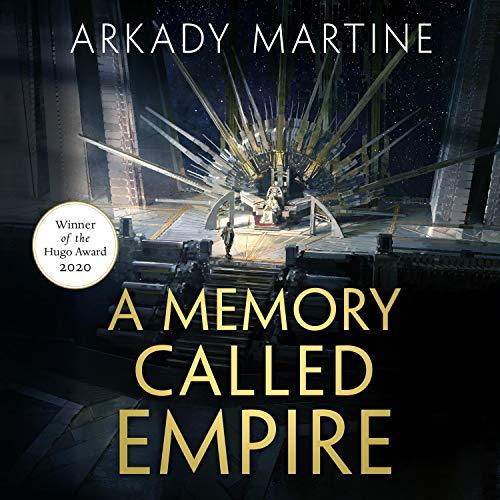
Okay, getting back into writing these reviews before I fall so far behind that catching up is just impossible. Memory is the first book this year that I’ve actually read before; I’m rereading as the first choice for a theoretical book club with some friends. Honestly quite enjoyed the experience, if only because trying to jot down some things to say when discussing it forced me to take it a little slower this time.
To get the technical details out of the way – the book won the Hugo, and did basically deserve it. The writing’s lovely and occasionally downright poetics, the two leads are both insanely compelling, and the court intrigue is appropriately convoluted and byzantine for what is obviously Constantinople IN SPACE. It’s just overall a joyous read.
So Martine’s clearly very fascinated by the experience of having your standards of aesthetics, and sophistication, and civilization defined by a culture which has never even bothered to notice your existence. The simultaneous rapture at being in the heart of the universe that you’ve read about your entire life, and deep alienation knowing you’ll never actually be a part of it. How ever most of the people trying to be friendly and compliment you don’t even notice how patronizing they’re being. And so on and etc. Mahit’s internal monologue does a really good job of selling the ambivalence of it, especially in the party scene.
The book does an excellent job of actually selling the palace district as a site of imperial grandeur, too, every building buried in symbolic aesthetics and ritual significance. But also just, like, actually impressive and grand to read about. All the contrasts between the oveflowing abundance in the city and life on Lsel are fascinating too – Martine makes really good use of the little worldbuilding quotes at the start of chapters to sell the difference. The one that really stuck in my head was a quote from a tourism
guide explaining all the myriad fine dining choices for tourists visiting the City followed directly by a Lseli agricultural report about how new hydrophonic techniques had increased rice yield sufficiently to support a whole hundred non-replacement births in the next generation (it helps that all the Teixicalaanli food legitimately sounds pretty amazing). Though the time where Mahit’s internal monologue short circuited over the idea of carrying a pregnancy to term in your own body – wasteful! Depriving the station of a necessary laborer for months and months when perfectly good artificial wombs are right there! So decadent – is a close second.
Martine is, as I understand it, a Byzantinist, and oh boy can you tell. The city’s a little bit Tenochtitlan in the aesthetics and the religion, but it really is overwhelmingly space Constantinople. The theoretically absolute emperor dealing with mobs in the streets willing and potentially able to acclaim a usurper, the constant risk of legions doing the same, the basic fact that there’s a vast empire which is viewed as nothing but an adjunct or extension of the capital city which is the entirety of all political life and the place everyone whose anyone needs to be, and so on.
In a way, the obvious Byzantine-ness of the Teixicalaanli makes them seem less imperialist than just imperial, at least from Mahit’s perspective. Which is to say, well, first of all that ‘empire’ has far too many meanings and distinguishing them is hard, but the Teixicalaanli don’t expand like the British or French, in constant competition over captive markets and strategic locations, they don’t feel some glorious burden of manifest destination or a mission civilisatrice that requires universal dominion. They already are the universe, or at least everything worthwhile in it, they go to war like medieval kings or Roman princeps – to win glorious victories and so show the empire they have the right to rule it.
The relation between Lsel and Teixicalaan – well, if suffers from the standard space opera lack of scale, first of all. The stationers number in the tens of thousands – the empire must be in the hundreds of billions, minimum. ‘Realistically’ Six Directions would never have found out about the imago device because relations with them would have been handled by some mid-ranking provincial governor, only showing up in travelogues and fanciful ethnographies. But leaving that aside, Teixicalaanli myopia also means that the cultural imperialism that the book’s so fascinated by is oddly...blameless? Teixicalaan presumably has brutal campaigns dedicated to stamping out native cultures and integrating them into the empire, but there’s hardly one directed at Lsel. The general sense you get is one of vaguely tragic inevitability – that the mismatch in size and wealth is such that of course any sort of even slightly free exchange of media and ideas will lead to Stationer culture being overwhelmed. Makes me think about arguments around CanCon regulations.
(The whole Roman, medieval feel of the empire means it all kind of calls to mind various Germanic elites actively reaching for Roman iconography and institutions to legitimize themselves as much as anything, though of course that’s not really right.)
The book’s politics are, I think, a bit limited by the degree it’s laser-focused on the very uppermost tip of imperial society – the book seems to know this too, given the thirty page digression into cyberpunk two thirds of the way through (speaking of which, I absolutely adore the fact that the elegant, ritually harmonious and utterly aesthetic architecture lasts about three metro stops away from the palace before everything starts turning into economical concrete blocks). Which isn’t really a knock on the book, but I do think some of the praise of it does get a bit overblown; there’s a limit to how much insight you can really have on imperialism when you’re so focused on the stories an empire tells about itself in its most rarified and luxurious heart.
In much the same way there’s something very, I don’t know, ‘written in America in the late 2010s’ about the political imagination the book allows itself. There are people who don’t want the world to be the world, and maybe they can help a bit, but the actual players in the game of thrones are corrupt oligarchs and populist warmongers, you know?
All that said, the book sure does portray a city that views itself as synonymous with civilization. I only realized there was a Teixicalaanli word for foreigner that wasn’t ‘barbarian’ when one of the probably-terrorists made a point of using it during the whole cyberpunk interlude. Which retroactively makes, like, every single other Teixicalaanli character in the book waaaaay more of an asshole. (fanfic thought - Teixicalaanli attempts to talk even vaguely respectfully to/about foreigners as analogous to people trying to be gender neutral or talk about nonbinary people in really strongly genedered languages, right down to the awkward neologisms that the ‘average citizens’ rolls their eyes at. What’s the Teixicalaanli term for ‘the woke plague.’?)
Also – not really a better place to put this in, but something I really do like about the worldbuilding is that no one has anything like the same ideas of what constitutes political legitimacy as the contemporary liberal default? Lsel is a corporatist state, where political power is divided between what are basically guilds who seem to have wide remit to make policy within their jurisdiction, with only one seat on the council seeming to have any sort of election. And Teixicalaan is, of course, a bureacratic-verging-on-stratocratic monarchy, with a strong sense of popular involvement in government, but through demonstrations and rioting instead of any formal process. It’s enjoyable that neither place is actually, like, familiar.
The motor of the book’s plot is byzantine (or Byzantine, I suppose) court intrigue, and as someone who loves polite conversations and poetic allusions followed directly by assassination attempts, I adored it. That said, I’m going to be a slob demanding everything be hand fed to me for a minute and saying that it all got positively opaque by the end. Which is, I suppose, entirely realistic, given Mahit’s position and role in everything, but still I wanted an Agathe Christie drawing room denouncement so bad. Was Ten Pearl actively backing the coup? If not, what was up with the Sunlit? And the Cityshocks? Why was the Information Ministry so politically passive and uninvolved in a literal coup attempt? How was Eight Loop involved in the whole final resolution, given it was her people keeping the emperor safe but it was Nineteen Adze who was with him on camera? All these questions and more, unanswered and, probably, irrelevant! But like, inquiring minds want to know.
Though speaking of the coup, I really did absolutely adore how, like,incompetent and amateurish both coup attempts were? Which seems like it would be a plot hole, but actually it’s probably the strongest argument the book can make for Six Direction’s immortality plan – the empire has been peaceful for so long no one remembers how to do a coup.
Anyway, yes! Extremely good book, Mahit and Seagrass are absolutely great protagonists. Not at all sorry I’m peer pressuring people into reading it.
187 notes
·
View notes
Text
Feel free to make suggestions. I may make another poll if there are enough candidates.
More polls.
#polls#sapphic reads#queer reads#lgbt reads#sapphic leads#teixcalaan#a memory called empire#a desolation called peace#arkady martine#the stars are legion#kameron hurley#this is how you lose the time war#amal el mohtar#max gladstone#the priory of the orange tree#samantha shannon#ninefox gambit#yoon ha lee#the privilege of the sword#ellen kushner#down among the sticks and bones#wayward children#seanan mcguire#the long way to a small angry planet#the wayfarers#becky chambers#gideon the ninth#harrow the ninth#the locked tomb#tamsyn muir
271 notes
·
View notes
Text

50 notes
·
View notes
Text
"A Memory Called Empire" perfectly captures the feeling of being on the outside of an empire, looking in as it immolates itself, and hoping not to get burned.
251 notes
·
View notes
Text
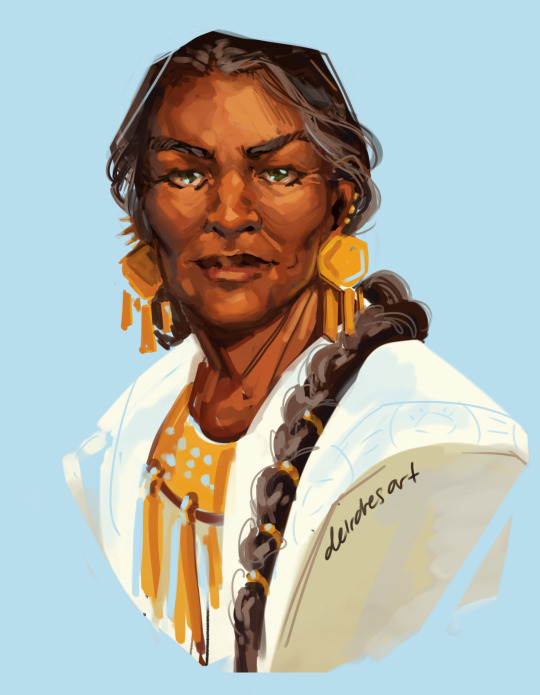

Nineteen Adze redraw! (2022 vs. 2021)
520 notes
·
View notes
Text

I’ve decided to name it Thirty-six All Terrain Tundra Vehicle
216 notes
·
View notes
Note
i've heard good things about a memory called empire so i'm curious. can i ask why you gave it a lowish score?
To restate, I thought the book was decent, not excellent. I plan on reading the sequel! I thought it was a technically impressive debut novel with interesting worldbuilding that stumbled a little because of pacing and some bad poetry. Thematically I had more problems.
My biggest problem was that while it was a novel that wanted to talk about imperialism and indeed was presented as one by the author, it chose the closed elite focused setting of court intrigue. I'll admit I'm harsh on court intrigue because it bores me, and ideologically most of them espouse a Great Man perspective of history so. Imperialism ended up being realised merely as a concern of cultural preservation, with the difference between imperial subject and the core repeatedly becoming a matter of taste over the more interesting concerns of exploitation or agency. Which is also what I hate about diaspora lit, where the individual elite immigrant's sense of cultural alienation is front and center. Hence the reference to Baru, because where the hell is your political economy! Martine also critiqued Seth Dickinson for writing the Maskerade empire as unrealistic because it was too brutal, which makes this choice by Martine make a depressing kind of sense.
I'm admittedly cynical about this but I really dislike when writers write novels about how 'storytelling' or in this case 'poetry' changes the world in dramatic ways. It reads very much as pandering to readers who need to be told that their hobby is important or something. Something Vonnegut quote about Vietnam War artistic opposition having the effect of a custard pie.
That said, the book had more interesting thoughts on the nature of culture/self and consciousness as embedded in memory through the imago machine as a device. The chapters dealing with that in the last third of the book were some of the best SFF writing I've read this year.
123 notes
·
View notes
Text
Forever salty that my least favorite example of the "sapphic sff imperial deconstruction novel" microgenre that hit the scene in the late 2010s seems to have by far been the most popular.
#least fave is to be clear though it is still okay#the locked tomb#read other ones instead#a memory called empire#the stars are legion#the traitor baru cormorant
28 notes
·
View notes
Text
Book recs: possession, bodysnatching and bodysharing
Demons, ghosts, aliens, sentient bacteria, artificial intelligences - isn't there something fascinating about the idea of sharing a body with another being like a giant get-along t-shirt? No? Too bad, because I'm going to tell you about books featuring this trope anyway.
A note: multiple of these books are sequels where the bodysnatching/possession aspect plays little to no part in the first book. In all these cases, I still recommend starting with book one. I also in one case chose not to include a certain sequel that I loved as even mentioning it in this context would be a huge spoiler, so, uh, sorry about that.

For more details on the books, continue under the readmore. Titles marked with * are my personal favorites. And as always, feel free to share your own recs in the notes!
If you want more book recs, check out my masterpost of rec lists!
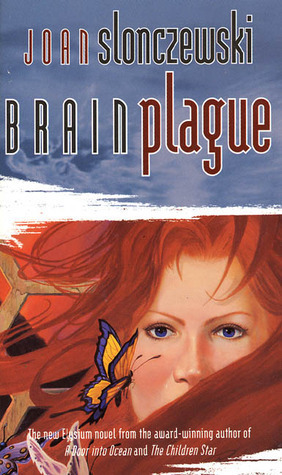
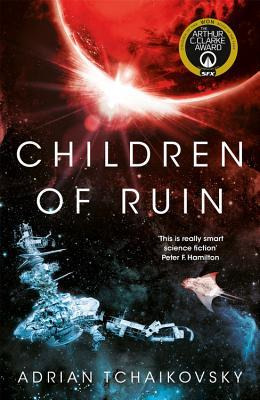
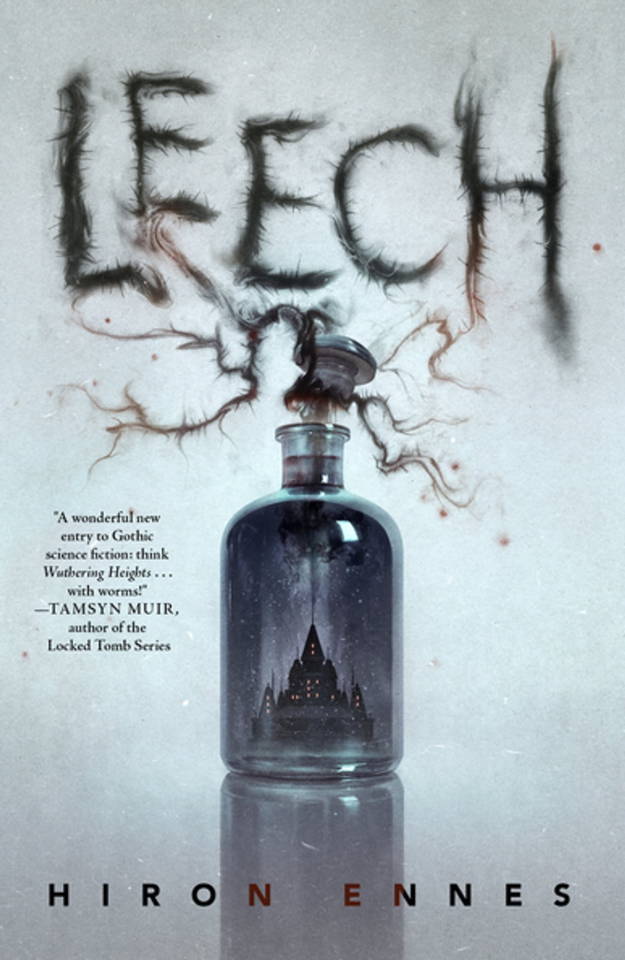
Brain Plague by Joan Slonczewsji*
Chrys, a struggling artist, agrees to become a carrier for a sentient strain of microbes. With their help, Chrys breathes new life into her career and becomes a success. But every microbe society is different - some function as friends and brain enhancers to their carrier, while others become a literal brain plague, a living addiction taking over the life of their carrier. And like every society, the microbe community is in constant flux - including the one inside Chrys's head.
Children of Ruin (Children of Time series) by Adrian Tchaikovsky*
Sequel to Children of Time. Millenia and generation spanning scifi. After the collapse of the Earthen empire, a project to terraform various planets and use them to uplift other species to sentience in left unfinished. However, both species and planets continue evolving on their own, and when what remains of humanity flees the dying Earth millenia later, these planets might be their only hope of survival. But the uplifted species aren't the only intelligent life out there, and are far from the most dangerous as the survivors encounter something capable of terraforming the human body itself.
Leech by Hiron Ennes*
Unbeknownst to humanity, a sentient hive mind has taken over the entire medical profession to ensure the health of their host species. One of their doctors is sent off to an isolated location where they’re cut off from the rest of the hive mind, only to realize they’re faced with a rivaling parasitic entity. Leech hands you only just enough information to get by, and whether its historical fantasy, an alternate timeline, or futuristic post apocalypse is hard to determine. It’s spooky and a bit weird and wildly creative.
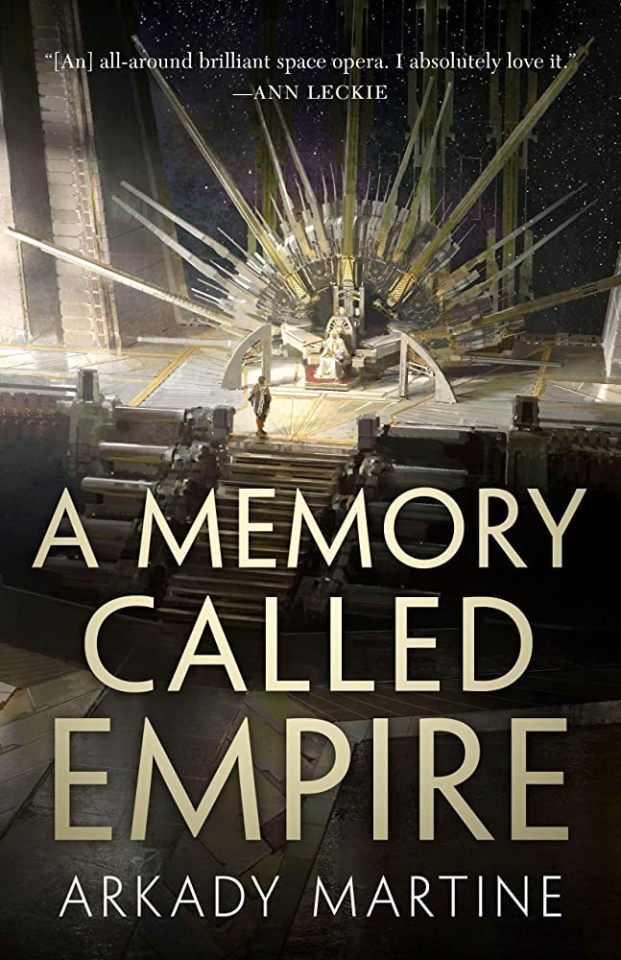
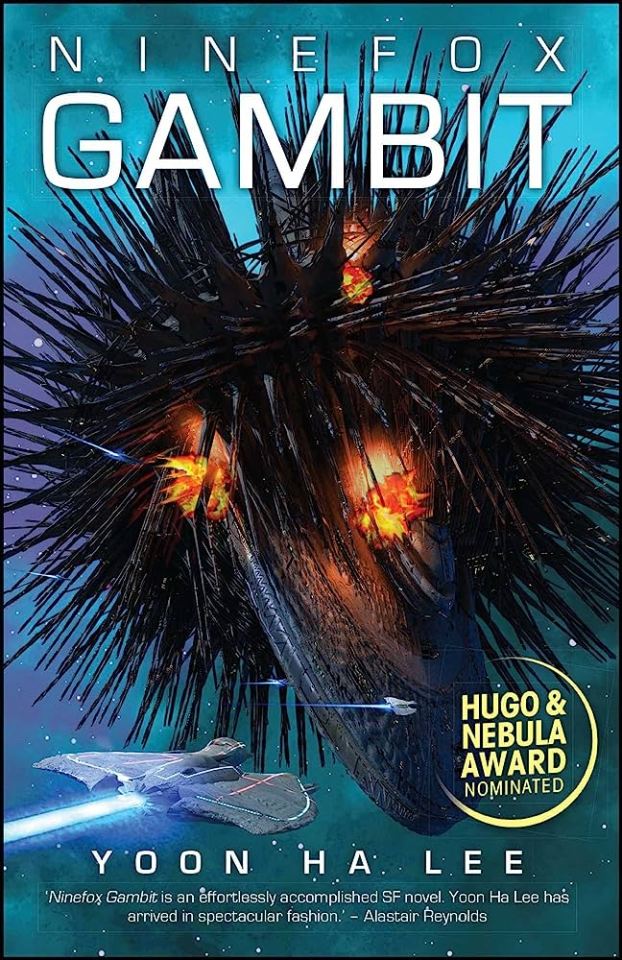
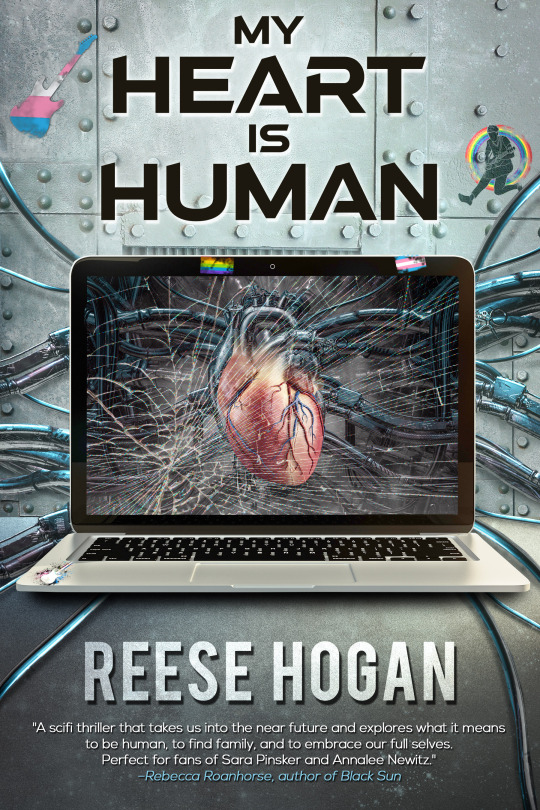
A Memory Called Empire (Texicalaan duology) by Arkady Martine
Mahit Dzmare is an ambassador sent to the center of the multi-system Teixcalaanli Empire, where she discovers that her predecessor has died. Trying to protect her home, a small independent mining station, from being taken over by the empire, Mahit struggles to find out the truth of her predecessor's death while carrying the voice of his ghost in her head, guiding her as best he can. Features a sapphic relationship but focuses more on world-building than romance.
Ninefox Gambit (Machineries of Empire trilogy) by Yoon Ha Lee*
Military space opera where belief and culture shape the laws of reality, causing all kinds of atrocities as empires do everything in their power to force as many people as possible to conform to their way of life to strengthen their technology and weapons. It’s also very queer, with gay, lesbian and trans major characters, albeit little to no romance. Disgraced Captain Kel Cheris is given a second chance by allying with the undead Commander Shous Jedao, who in life never lost a battle, but also went mad and massacred his own army. Now, Cheris must decide just how far she can trust him, with her forces as well as with her sense of self.
My Heart is Human by Reese Hogan
Nine years ago, all complex technology was made illegal. This complicates life for Joel, young transgender single father, as a bionic just uploaded itself into his brain without consent. Scared of losing his daughter, Joel tries to keep the bionic secret while using it to fix his life, but things quickly get more complicated as the bionic gains more and more control of his body. A bit simplistic in writing style but makes a lot of cool parallels of bodily autonomy to Joel’s experiences as a transman.
Bonus rec: if you like the general concept of struggling for physical control over one’s body with an AI, may I also suggest the (much grittier and gory) movie Upgrade.
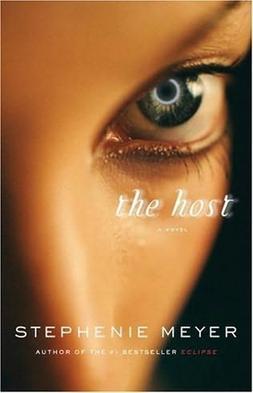
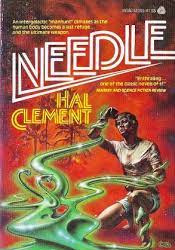
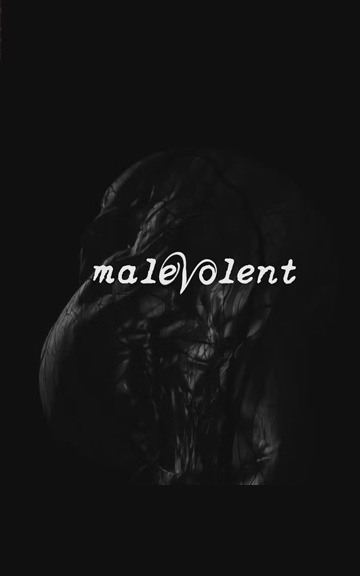
The Host by Stehpenie Meyer*
The Host follows Wanderer, an alien part of an invading force on Earth. Humans have been defeated and are being used as host bodies, but Wanderer's host Melanie is being difficult and refuses to fade away. Instead she fills Wanderer's mind with images of Jared, the man she loves and who's still in hiding. With Melanie's feelings bleeding into Wanderer's the two reluctantly ally to find and keep safe the man they both love. While The Host does feature Meyer's trademark romance - of which I'm not the biggest fan - the more interesting and arguably more central relationship is that between Wanderer and her human host.
Needle by Hal Clement
1950s classic. A small island in the pacific ocean and a fourteen-year-old boy have just become the center of an interstellar chase between an alien Hunter and the criminal he’s pursuing. Robert is a regular boy, but he has a very special passenger: an alien symbiont hiding inside his body. The alien became stranded on Earth as he pursued a criminal of his own species, and now they are both trapped on the same island, playing a game of cat and mouse as Robert and the Hunter struggle to find their prey before it finds them.
Malevolent by Harlan Guthrie*
Lovecraftian horror mystery. Private detective Arthur Lester wakes up in his office, his partner dead, memories fuzzy, vision gone, and the voice of a malevolent entity in his mind. Unable to see, Arthur is forced to rely on guidance from the entity as he attempts to solve the mystery of what it is and where it came from. Is this a book? No. But as someone who reads mostly audiobooks, the difference between a book and a fiction podcast is negligible, and also I love this story and its characters and want all of you to do so too.
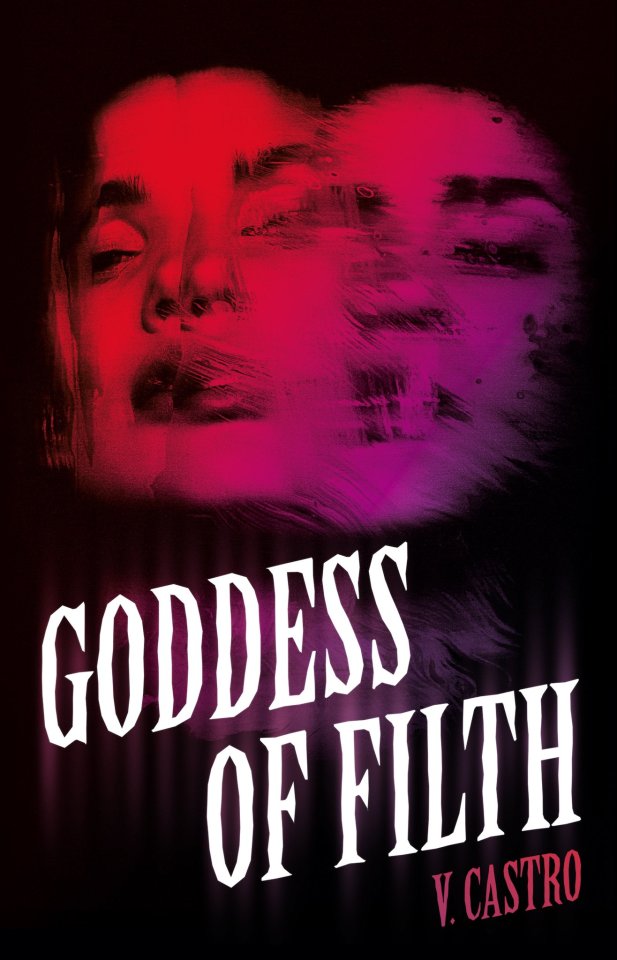
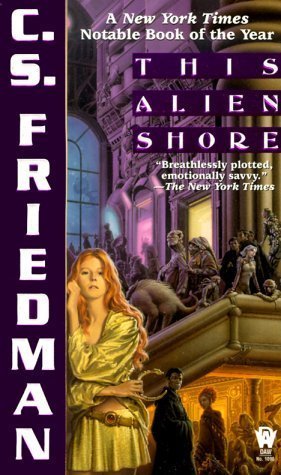
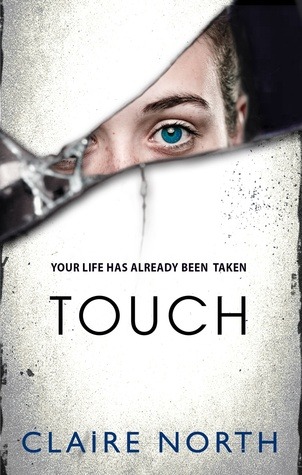
Goddess of Filth by V. Castro
Novella. What starts as a drunken seance between friends ends with one of them chanting in Nahuatl, the language of their Aztec ancestors. Following that night, the formerly shy Fernanda has changed. While her family calls for priests, claiming her possessed by a demon, Fernanda's friends believe what has taken up residence in her is something decidedly older. A quick read featuring female rage, desire and empowerment, this is a different twist on the typical possession story.
This Alien Shore by C.S. Friedman
Space opera in which humanity found a way to faster than light travel and began establishing colonies all over the galaxy, only to belatedly realize the method of FTL caused irreversible mutations and disabilities and leaving their nascent colonies to die. Much later, many of the colonies have survived and thrived, and one has found a new method of FTL travel, allowing an interconnected space society to grow. However, Earth is on the hunt for their method and is prepared to do anything to steal it. Trapped in the middle of all this and forced on the run is young Jamisia, who is little by little coming to realize that not only might she be the very solution Earth is after, she's also not alone in her own mind and body.
Touch by Claire North*
Kepler should have died long ago, beaten to death in an alley. Instead, a switch happened as Kepler leapt into and took control of the body of the killer. Since then, Kepler has lived in body after body, having gained the ability to inhabit anyone with a touch and stay for anything from a few minutes to an entire lifetime. Kepler cares much for the host bodies, and when one of them is brutally assassinated, Kepler must find the killer, avenge the host's death, and stop it from happening again. You want a fucked up main character with fucked up morals who still genuinely cares for people? Then boy do I have the book for you!
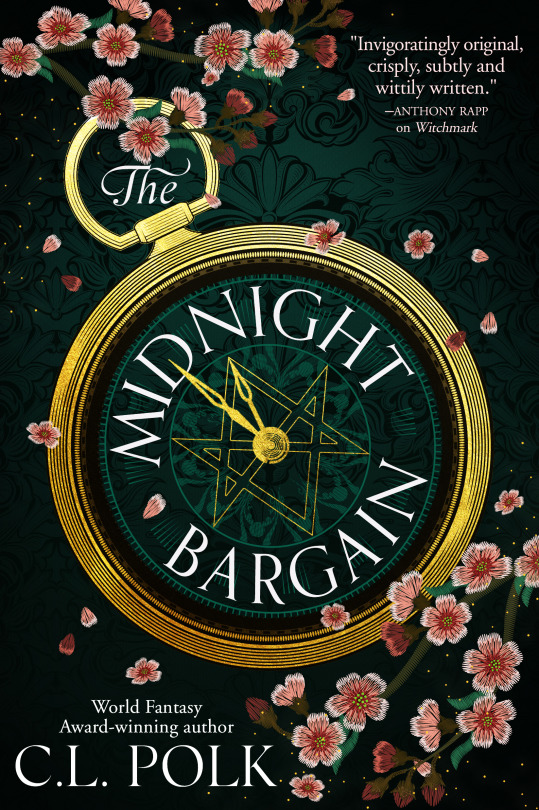
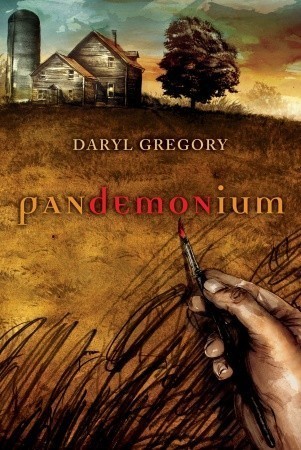
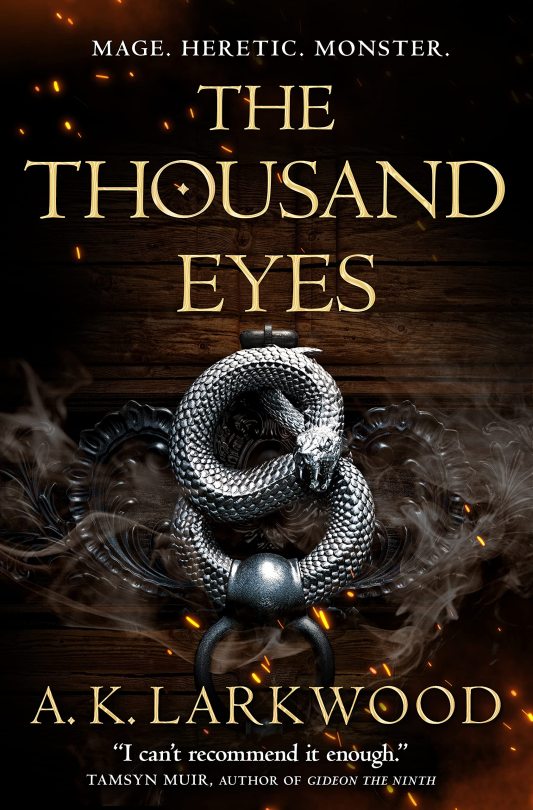
The Midnight Bargain by C.L. Polk
Fantasy romance. Beatrice Clayborn is a sorceress, but if her family gets its way she won't remain so for long. Married women are forbidden from practicing magic, and Beatrice's father is intent on marrying her off to save them from destitution. Beatrice has a different plan: become so powerful a sorceress that she can herself save her father's business and becomes too valuable to marry off. To achieve this, she strikes a bargain with a minor spirit of fortune. In return, the spirit demands to be present in Beatrice's body as she experiences her first kiss... a kiss with a man who might jeopardize all her plans.
Pandemonium by Daryl Gregory
Del Perce's world is almost indistinguishable from ours, the only difference being the presence of possessing entities that can strike with little to no warning. When he was young, Del was possessed by one of these demons, which was eventually exorcised. But now he’s experiencing a resurgence of symptoms, a voice in his head demanding to be freed. To save himself, Del races to find out the truth behind the possessions.
The Thousand Eyes (The Serpent Gates duology) by A.K. Larkwood*
Sequel to The Unspoken Name (please read that first, I promise this duology is very worth it). These books have a lot going on: portals, flying ships, orcs, elves, creepy snake gods, possessions, cults, immortal evil mages who traumatize teens as their hobby, gay and lesbian frenemies, the works. Csorwe, born and raised in a cult and meant as a sacrifice, escapes her intended death with a mage who becomes her mentor. But he has dangerous motives of his own, and Csorwe must decide where her loyalties lie.
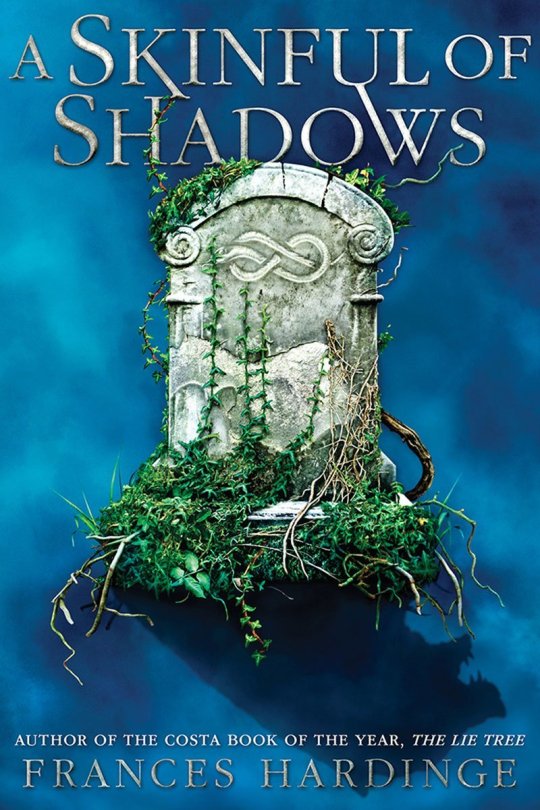
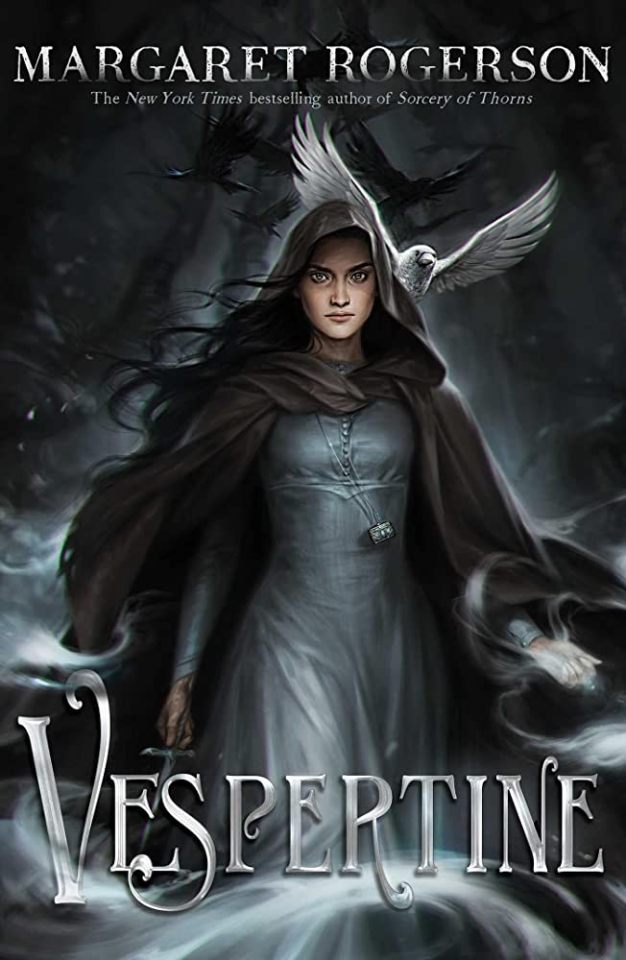
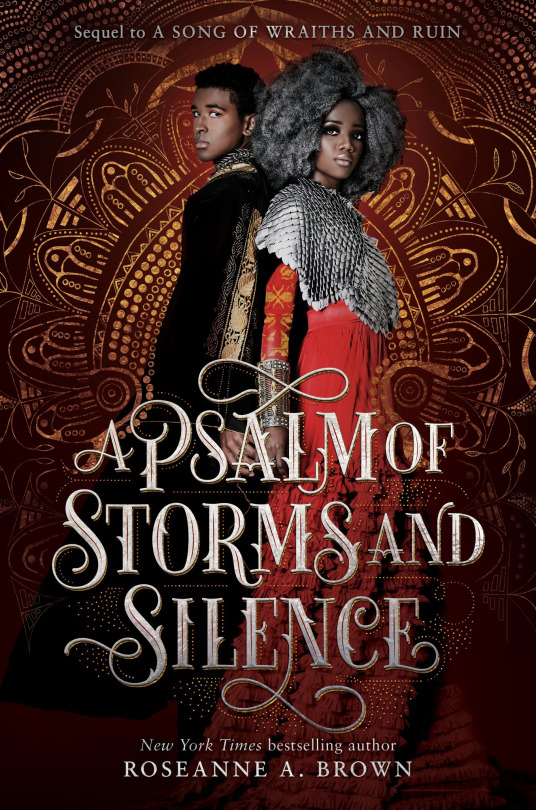
A Skinful of Shadows by Frances Hardinge
Young adult, historical. All her life, Makepeace's mother has been teaching her how to defend herself from the possession of ghosts, until one day her guard drops and a wild and fierce spirit slips in. When Makepeace's mother dies and she is sent to live with her father's family, this spirit might be her only defence. Because her family is harboring dark secrets, and they have plans for Makepeace... plans which do not care for her well-being. Unlike most other YA I've read in terms of vibes and plot, A Skinful of Shadows is a unique and intriguing read.
Vespertine by Margaret Rogerson*
Young adult fantasy. Artemisia prefers the dead to the living, and is training to become a Gray Sister, a nun who helps the souls of the deceased pass on to the afterlife rather than remain as dangerous spirits. To defend her convent, Artemisia accepts the help of a dangerous revenant, a powerful spirit which grants her great power but also could possess her the moment her guard is lowered. As evil threatens her homeland, Artemisia and the revenant must find a way to work together.
A Psalm of Storms and Silence by Roseanne A. Brown
Young adult fantasy. Sequel to A Song of Wraiths and Ruin. To save his family, Malik has made a deal with a dangerous spirit with equally dangerous demands - the death of the princess. Meanwhile, princess Karina is seeking her own power, meaning to resurrect her assassinated sister no matter what the prize. As their paths intertwine, the consequences of their pursuits keep getting higher, both for them, their nation, and the entire world.
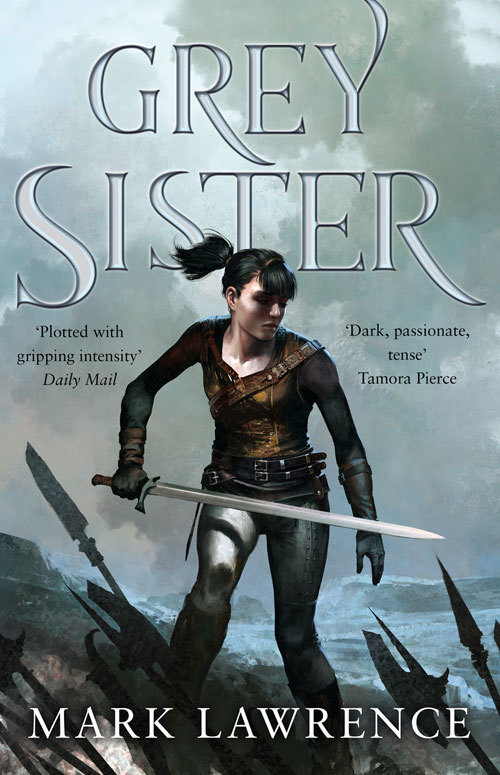
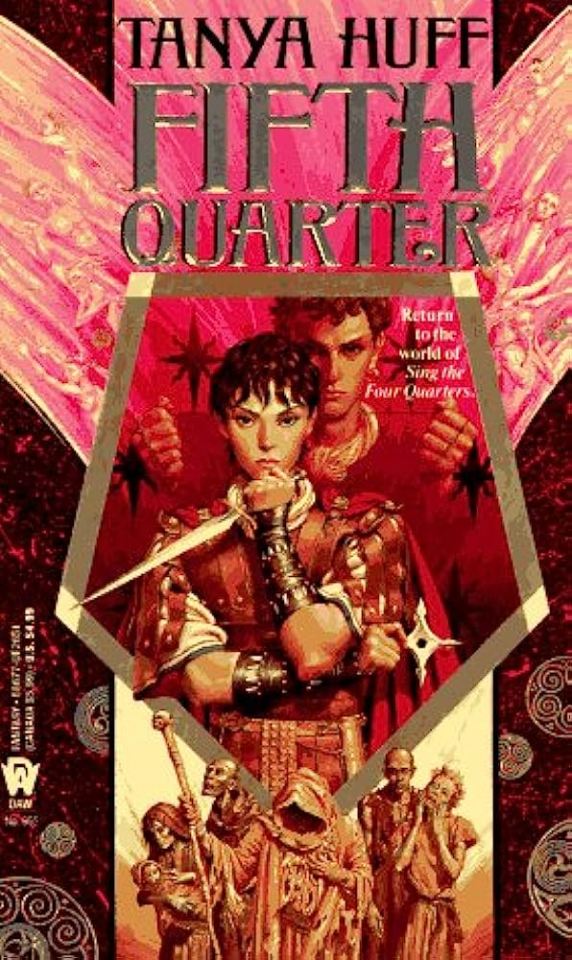
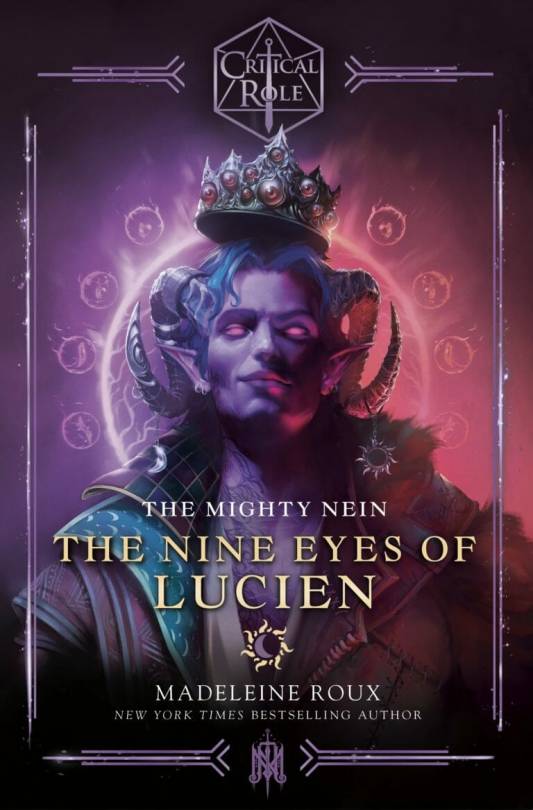
Grey Sister (Book of the Ancestor trilogy) by Mark Lawrence
Sequel to Red Sister. Fantasy with sci-fi flavor. Nona is being raised to become a killer at the Convent of Sweet Mercy. But dangerous classes aren’t Nona's only problem: her planet is slowly dying, and her own inner demons whisper in her mind. As the sun grows weaker and ice creeps ever closer, Nona and her allies race to save themselves from extinction.
Fifth Quarter (Quarters series) by Tanya Huff*
Sequel to Sing the Four Quarters. Fifth Quarter is only loosely connected to the first book in the series so you could read it as a standalone, however I still recommend starting with Sing the Four Quarters as it is very good. Bannon and Vree are siblings and highly skilled assassins, but they are put to the test when a failed assassination finds them sharing a body, their intended victim having stolen Bannon's. Now, they must choose between remaining loyal to their Empire, or helping their supposed victim find a new body to steal - and he doesn't want just any body, he wants the royal prince.
The Nein Eyes of Lucien by Madeline Roux*
Recommended with the caveat that you're unlikely to get the full experience unless you have also watched Critical Role Campaign 2 (which is quite the time investment, but very worth it). It follows the antagonist Lucien, first owner of the body we know as Mollymauk Tealeaf, both before Lucien lost his body and after he regains it in the ultimate struggle against Mollymauk's old friends, the Mighty Nein.
Bonus AKA I haven't read these yet but they seem really cool
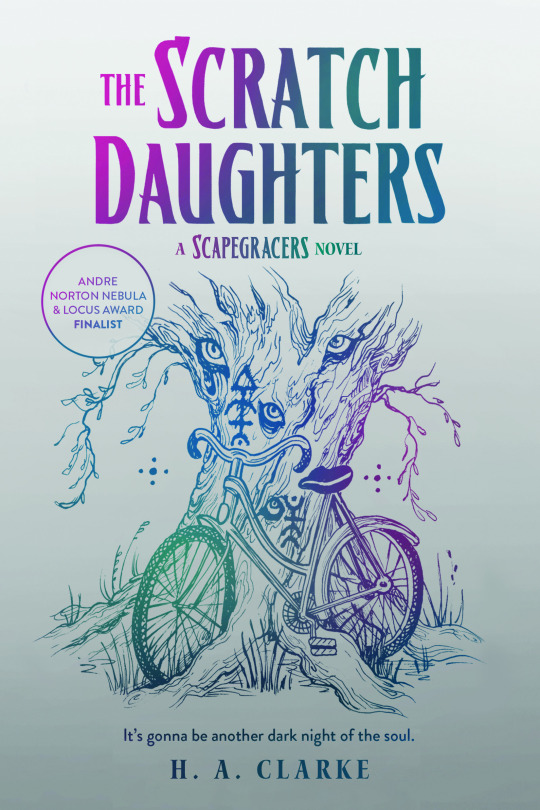
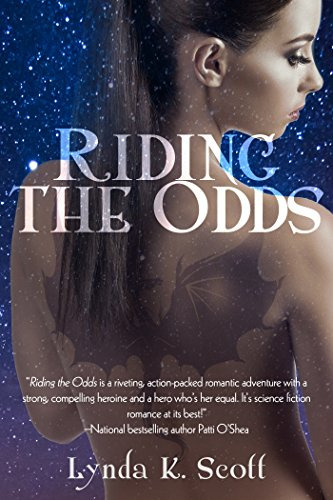
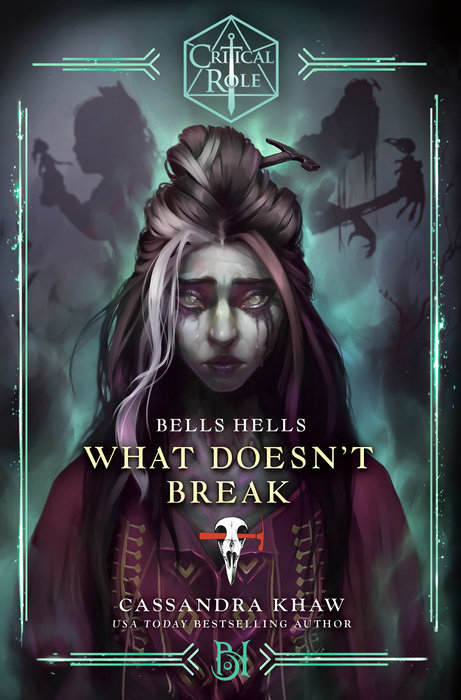
The Scratch Daughters (The Scapegracers trilogy) by H.A. Clarke
Sequel to The Scrapegracers. Sideways Pike used to be able to perform only party tricks, but in finding new friends and starting a coven, the four become powerful witches. But not everyone wants witches around. After having gotten her spectre stolen and losing her ability to perform magic, Sideways is forced to rely on Mr. Scratch, a book demon taking the place of her spectre to keep her alive. Now she must struggle to get her magic back before it’s too late.
Riding the Odds by Lynda K. Scott
Sci-fi romance. Tara Rowan is a spaceship captain with secrets - a past she wants to leave behind, and Zie, an organic symbiote which grants her greater strengths and reflexes. But when sexy Holy Knight Trace Munroe blackmails her in an attempt to rescue a missing princess, Tara's secrets are in danger of being revealed.
What Doesn't Break by Cassandra Khaw
Like The Nine Eyes of Lucien, you're unlikely to get the full experience of What Doesn't Break unless you're also a viewer of Critical Role. It follows the backstory of Laudna, undead sorceress and warlock with the ghostly presence of the necromancer who once murdered her keeping residence in her mind and tugging at her strings.
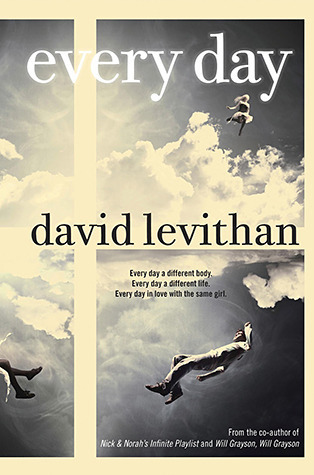
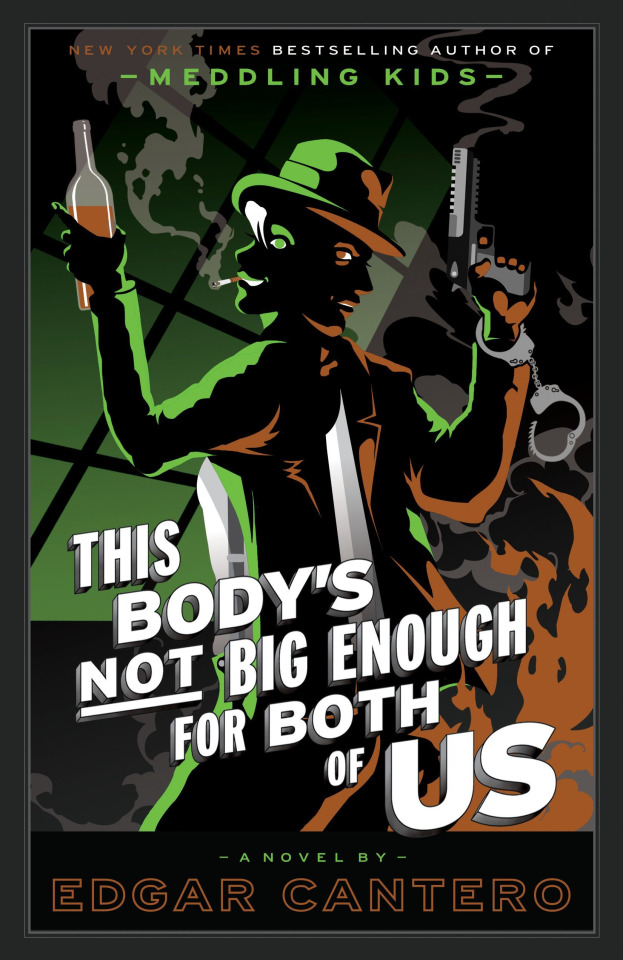
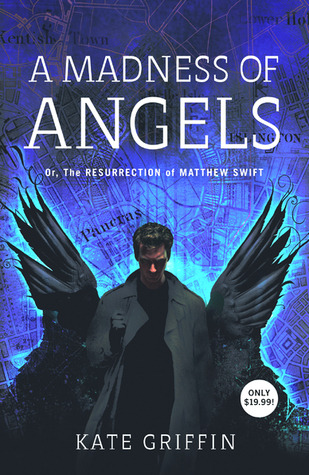
Every Day (Every Day trilogy) by David Levithan
Every day, A wakes up with a new body and a new life. A has rules on how to deal with this existence - don't get attached, don't get noticed, and don't interfere. But when A finds themself falling in love, all their established rules no longer apply. This one has also been adapted as a movie!
This Body's Not Big Enough for Both of Us by Edgar Cantero
A. and Z. Kimrean are twin siblings and private eyes - they also share the same body, calling themselves A.Z. When someone starts murdering the sons and heirs of a ruthless crime boss, it falls on A.Z. Kimrean to solve the case and find the killer before all out gang war breaks out.
A Madness of Angels (Matthew Swift series) by Kate Griffin
Two years ago, sorcerer Matthew Swift was killed. Today, he woke back up. And he isn't alone in his body... Now, he seeks vengeance not only against the one who killed him, but also against the one who brought him back.
Honorary mentions AKA these didn't really work for me but maybe you guys will like them: Bone Rider by J. Fally, The Lives of Tao by Wesley Chu, What's Left of Me by Kat Zhang, Hunter of Demons by Jordan L. Hawk, Odder Still by D.N. Bryn
#nella talks books#children of time#leech#a memory called empire#machineries of empire#my heart is human#the host#needle#malevolent podcast#goddess of filth#this alien shore#touch#the midnight bargain#brain plague#pandemonium#the unspoken name#a skinful of shadows#vespertine#a song of wraiths and ruin#red sister#fifth quarter#the nein eyes of lucien
39 notes
·
View notes
Text
the fucking mind on arkady martine to call the scifi phone-like futuristic networking device cloudhook and you're like "ah yes to hook into the cloud" until you read about the surveillance and the realization that the hook is from the other end absolutely SLAMS into you
31 notes
·
View notes